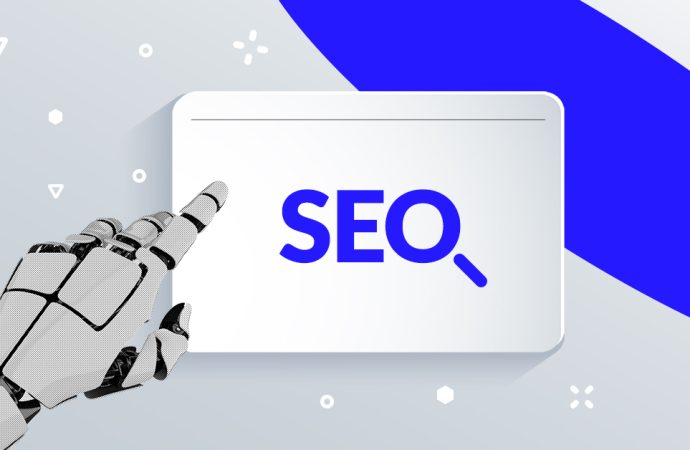Artificial Intelligence (AI) is no longer just a futuristic concept. It has already started transforming how search engines operate and how websites appear in search results. In the world of SEO, AI is quickly becoming a game-changer, influencing everything from keyword targeting to personalised content delivery. As search engines become smarter, brands must adapt or
Artificial Intelligence (AI) is no longer just a futuristic concept. It has already started transforming how search engines operate and how websites appear in search results. In the world of SEO, AI is quickly becoming a game-changer, influencing everything from keyword targeting to personalised content delivery. As search engines become smarter, brands must adapt or risk falling behind in the rankings.
AI and the Evolution of SEO
Over the last decade, SEO has evolved from basic keyword stuffing to a more refined, user-focused practice. AI has accelerated this transformation by making search engines more intelligent and efficient. Google’s algorithms, especially RankBrain and BERT, use machine learning and natural language processing to better understand user queries and content relevance.
Thanks to AI, search engines can now interpret intent behind a search, not just the keywords typed in. This means content must be helpful, relevant, and well-structured to meet user needs.
AI Tools Changing the SEO Landscape
AI-powered tools are now widely used in content creation, link building, and website auditing. Platforms like ChatGPT, Jasper, and Surfer SEO are helping marketers and content creators streamline their processes. These tools analyse trends, recommend content structures, and even generate optimised articles. This is not just making work easier — it’s also raising the bar for quality.
Search engines are favouring AI-optimised content that delivers value, loads quickly, and matches user expectations. That’s why businesses are investing more in AI to improve their SEO strategies.
Personalisation and User Behaviour Tracking
AI allows marketers to understand user behaviour better than ever before. It tracks how users interact with websites — which pages they visit, how long they stay, and what they click on. Based on this data, AI can personalise content and search experiences.
For example, if a user often searches for vegan recipes, AI will begin to prioritise those results even if the search term is vague. This kind of personalised ranking is shaping how websites are listed on search engine results pages (SERPs), putting even more pressure on businesses to know their audiences.
Voice SEO Is on the Rise
One major trend driven by AI is the rise of voice SEO. With the growing use of smart speakers, smartphones, and virtual assistants like Siri and Google Assistant, voice searches are becoming more common. These searches are conversational and often longer than text queries, requiring a different content approach.
To adapt, businesses need to create content that answers questions directly and clearly. Long-tail keywords and FAQs are crucial for voice SEO success. AI helps identify these patterns and can even optimise content for featured snippets, which are commonly used in voice results.
How AI Is Reshaping Rankings
Search engine rankings are no longer determined by just backlinks and keywords. AI evaluates a wide range of signals such as:
- User experience (UX)
- Page speed
- Mobile-friendliness
- Content depth and quality
- Engagement metrics (click-through rate, bounce rate)
AI processes these factors in real-time, constantly updating the way websites are ranked. That’s why a website ranking well one day might drop the next if it’s not consistently delivering value or adapting to new algorithms.
Content is Still King — But Now It’s Smarter
AI is not here to replace content — it’s here to improve it. With AI tools, content creators can now better understand what users are looking for, predict trends, and tailor content accordingly. Whether it’s blog posts, product descriptions, or landing pages, AI enhances every stage of the content creation process.
AI also helps in identifying content gaps. If your competitors are ranking for certain terms that you’re missing, AI tools can flag them for you. This gives you the opportunity to expand your reach and improve your SEO strategy.
Local SEO and AI Integration
For businesses targeting local markets, AI offers smarter local SEO solutions. AI-powered location data and consumer behaviour insights help businesses improve their visibility in local searches. Whether it’s updating business listings, collecting reviews, or optimising for local keywords, AI automates and enhances the entire process.
Virtual assistants are also used more frequently for local queries such as “best plumber near me” or “coffee shop open now,” making voice SEO even more important in local contexts.
Video and Visual Search Are Growing
AI isn’t limited to written content. Visual and video content is becoming more central to SEO strategies. AI helps index video content by analysing transcripts, captions, and even visual elements.
Google Lens and other image search tools are being used more often, and websites with optimised images and videos are seeing better rankings. Including alt texts, structured data, and mobile-friendly formats are all ways to take advantage of this AI-driven trend.
Ethical Concerns and Transparency
While AI brings efficiency, it also raises concerns about misinformation, data privacy, and content authenticity. Search engines are putting in checks to ensure AI-generated content meets ethical standards and provides real value.
For businesses, it’s essential to be transparent about how they use AI. Google’s guidelines emphasise that AI-generated content should still follow E-E-A-T (Experience, Expertise, Authoritativeness, and Trustworthiness) principles.
Final Thoughts: Adapt or Be Left Behind
AI is not just changing SEO; it’s completely redefining it. From how content is created and ranked to how users interact with search engines, the shift is rapid and ongoing. Businesses that embrace this change and use AI-driven strategies will stay ahead of the curve. Those who ignore it may struggle to stay visible.
Whether you’re a small business owner or a digital marketer, understanding and applying AI tools in your SEO efforts is no longer optional — it’s essential. Voice search, personalisation, and smarter ranking algorithms are not trends — they are the new normal.
















